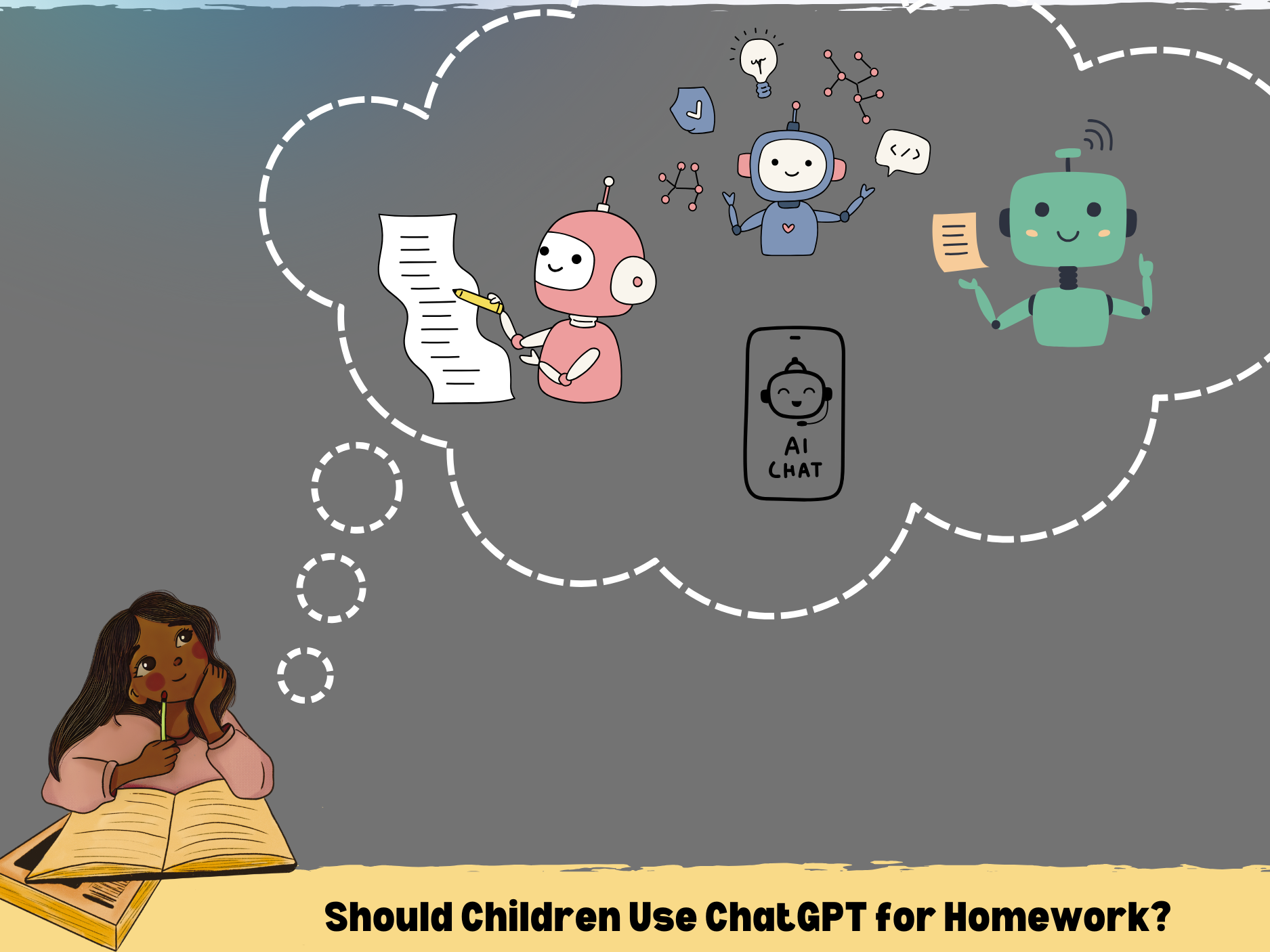 As artificial intelligence becomes a bigger part of our lives, tools like ChatGPT are now within reach for many children. This raises an important question: Should children use ChatGPT to do their homework?
As artificial intelligence becomes a bigger part of our lives, tools like ChatGPT are now within reach for many children. This raises an important question: Should children use ChatGPT to do their homework?
One reason to support the use of ChatGPT is the way it helps children learn. For example, when a child struggles with a math problem, they can ask ChatGPT for step-by-step guidance. It can also explain difficult science concepts or provide quick answers about historical events. This instant help can be a game-changer for kids who need extra support, especially when teachers or parents aren’t available to assist.
For families who can’t afford private tutors or expensive learning apps, ChatGPT offers a more accessible option. It provides help to children from all backgrounds, making education more inclusive. Beyond homework, ChatGPT can spark curiosity by allowing children to explore topics they’re genuinely interested in. This kind of exploration can make learning fun and exciting.
On the other hand, there are real concerns about children relying too much on ChatGPT. If kids use it for every homework problem, they might not develop critical thinking or problem-solving skills. These are important abilities that children need to grow into independent learners. Over time, relying too much on AI could make it harder for them to tackle challenges without help.
Another issue is that ChatGPT doesn’t always get things right. It might give incorrect or incomplete answers, especially on tricky topics. A child who doesn’t double-check the information could end up learning something wrong or submitting incorrect homework. This could lead to confusion and setbacks in their education.
Homework is designed to help children practice what they learn in class. It teaches them important skills like managing their time and sticking with a problem until they solve it. If children use ChatGPT to finish assignments quickly, they might miss out on these valuable lessons. The purpose of homework is not just to get the answers but to build skills for the future.
The solution isn’t to ban or fully endorse ChatGPT for homework but to find a balance. Parents and teachers can guide children to use it wisely. For example, children could try solving problems on their own first and then use ChatGPT to check their work or understand their mistakes. This way, they still do the hard work but get support when they need it.
It’s also important for children to learn how to verify the information they get from ChatGPT. They should be encouraged to compare answers with trusted resources like textbooks or educational websites. This habit not only helps them avoid mistakes but also teaches them how to research and think critically.
